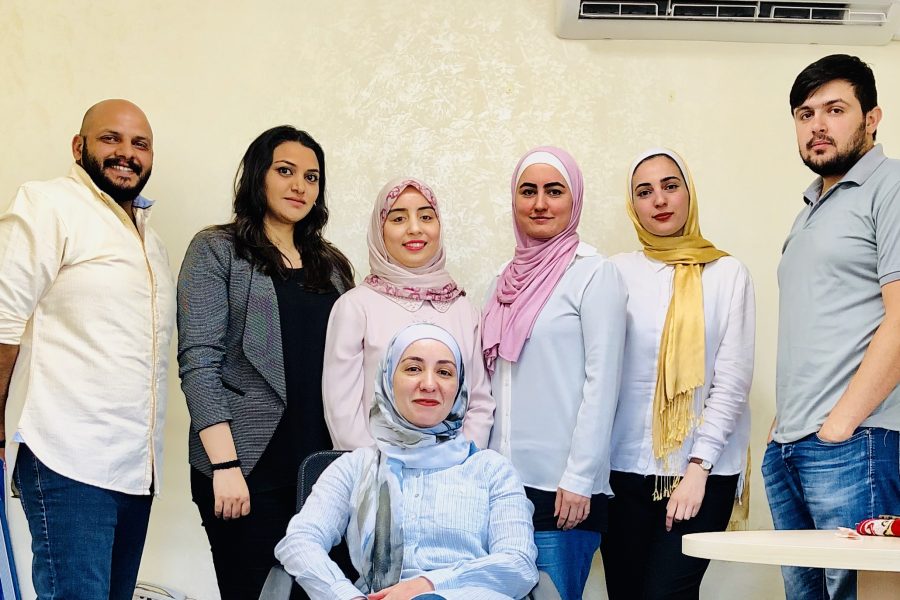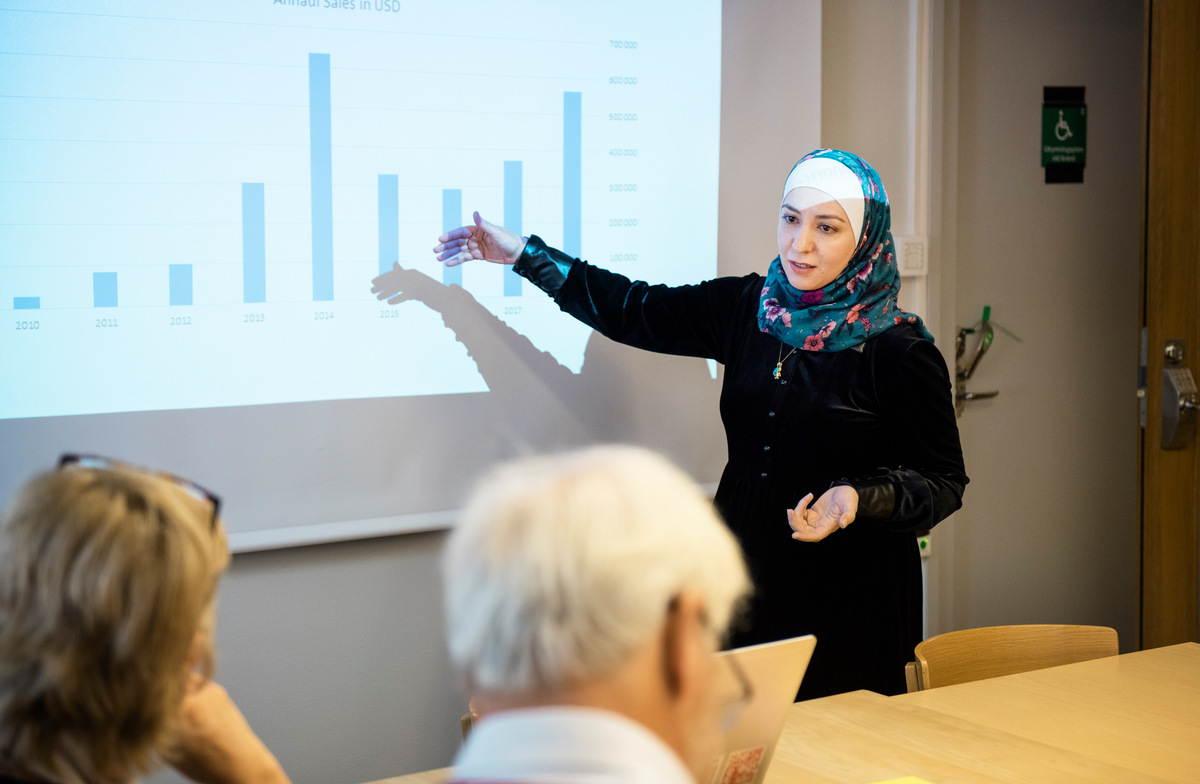When Maleeka Zakarneh started out as an electronics engineering student, a new field of study in Jordan at the time, she was the only woman among 80 male students, and one of only 13 to graduate. After graduation, she faced difficulty finding a job in this male dominated profession. She finally got an internship in a maintenance shop for electronical devices.
‘It was hard for the community to picture me as an electronics engineer. Even the people who came into the shop thought I was a receptionist, and when they found out I would do the repairs, they wouldn’t let me.’
Another thing Maleeka discovered was that she had no practical skills from university – only theoretical. She was disappointed and initially questioned her choice of career. The internship helped her level up her practical skills and her career moved forward.
‘Now I don’t regret anything because I learned things I would not have learned if my journey had been easy.’
After a few years as a technical advisor, she started her own company in 2006 that provides vocational and engineering equipment for primarily universities. In short, she helps students attain a balance between theoretical and practical learning she never had.
‘In 2018 I had some problems with my business including a declining market share. This was also when I applied to the She Entrepreneurs programme. I felt like a loser and was about to shut down my business. The programme helped me see the opportunities instead of the negatives and stopped me from making bad decisions about my company. And after the programme, instead of thinking about closing down, I was thinking about expanding my business.’

As part of her business, she had become a licensed photovoltaic contractor and installer, helping her customers make the transition to renewable energy. After attending She Entrepreneurs, she is now in the process of opening her own factory to start manufacturing equipment instead of importing it. She is looking to become a wholesaling operation for the Middle East, starting with Jordan, Palestine and Saudi Arabia.
‘During the programme, I learned how to manage myself, my emotions and my business. I started to deal with employees in a more professional way. I became clearer with them, and I started to share my vision, mission and my values. This was a direct impact from the programme on me and my teammates.’
The programme had also given her added inspiration and motivation: ‘Immediately when I came back from Sweden, I had these thoughts haunting me, so I started right away to look at investment options. I made a plan and worked on it ever since I came back until now. I have approached banks and capital ventures in Jordan and now we are in the final stages.’
During the programme in Sweden, she had the opportunity to practice pitching her business ideas. She had also attended workshops on how to scale up your business and had discussed her ideas with her mentor and some other people. The programme seems to have contributed well.
‘How the programme was designed, taking us to lectures and entertainment – which was also a learning experience – I don’t think you could add to this. It is perfect. We went to an island where we were only women, and we could do anything we wanted. This was new to me, and it really impacted me. Many of my perspectives became different in a positive way after this experience.’
Find out more about She Entrepreneurs.
Find out more what SI alumni are doing worldwide and get in touch with a local network.
